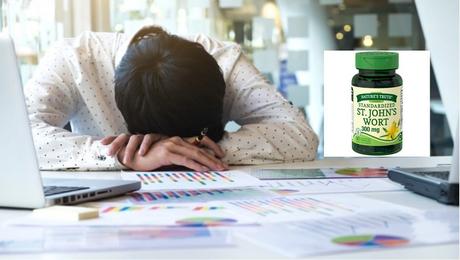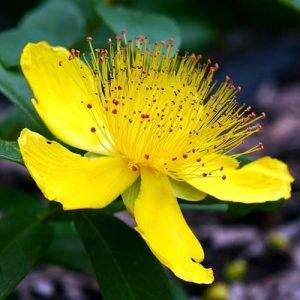
St John's Wort is the go-to herbal remedy for depression symptoms. Besides that, it can be used to manage social anxiety, poor appetite, and even tiredness. But while it's a great natural supplement, it tends to cause sleepiness in some people.
So, why does St John's Wort cause sleepiness? Is this normal or should I be concerned? Read on to find out.
St John's Wort: How It Works
Within this herbal supplement is a substance known as hypericin which is known for its powerful antiviral and anti-cancer properties when exposed to light. That said, those properties have only been shown on animal studies - so, there are no human studies yet.
Besides that, Saint John's Wort is a well-known serotonin booster. It's no wonder it is a common ingredient in products like the "Be Happy" tea.
Why It Causes Sleepiness
This natural supplement comes in different forms either as a topical ointment or powder form. As we have already noted, this product contains serotonin-boosting properties.
In fact, you should completely avoid taking it as it interacts serotonin reuptake inhibitors (SSRIs) in just the same way other serotonergic drugs like citalopram and tramadol do ( source).
Now, one thing you have to note about serotonin is that it's a "feel good" neurotransmitter. According to Medical News Today, serotonin is a precursor for melatonin. As you might be aware, melatonin plays a key role in regulating the sleep-wake cycles.
Related: Sleepy After Breakfast? 8 Reasons Why
Exposure to Light
One interesting thing you need to know about the production of melatonin especially when Saint John's Wort is taken is that its effects are accelerated when your eyes are exposed to light (particularly blue light).
So, if you always feel sleepy after taking this supplement, you might want to avoid exposure to light just after taking it if you don't want to feel drowsy. You can take a look at this study done at the Colorado State University to that effect.
Not a Stimulant

So, it's worth noting that even though it's commonly found in some teas, it's not really a stimulant. In fact, a 2008 study was done to check whether it can be used for managing ADHD as an alternative stimulant and researchers from the Bastyr University in Kenmore concluded that it doesn't help in ADHD management at all.
It's therefore, not surprising that it makes you sleepy instead of psyching you up.
The Best Way to Promote Wakefulness
There are three ways to through the nervous system, at the neurotransmitter level and the cellular level.
Nervous Level Stimulants
Stimulation through the nervous system is accomplished through caffeine. Caffeine looks exactly like adenosine (a substance that slows down your cells) and binds of adenosine receptors effectively increasing the speed at which nervous impulses are transmitted.
Further Reading: See How These Caffeine-Rich Chewing Gum Can Benefit You
Neurotransmitter Level Stimulants
At the neurotransmitter levels, stimulation works by improving the way in which motor neurons work. This is accomplished through substances known as neuromodulators of which acetylcholine is the best one out here right now. Acetylcholine can be obtained through supplements like Alpha GPC, choline, and Citicoline.
Cellular Level Stimulants
The final way of promoting wakefulness is by improving the effectiveness of mitochondria. These are elements found within your cells that are responsible for breaking down energy in your body. By boosting their effectiveness, you naturally feel more energetic and focused. The best way to achieve this objective is by taking the Phosphatidylserine (PS) nootropic.
Final Thoughts on St. John's Wort & Sleepiness
This herb is highly recommended for the management of stress and depression symptoms. It, however, may cause sleepiness owing to its ability to support the production of serotonin which is a precursor of melatonin. You may visit this link to learn more about different causes of drowsiness during the day and what you can do about them.
